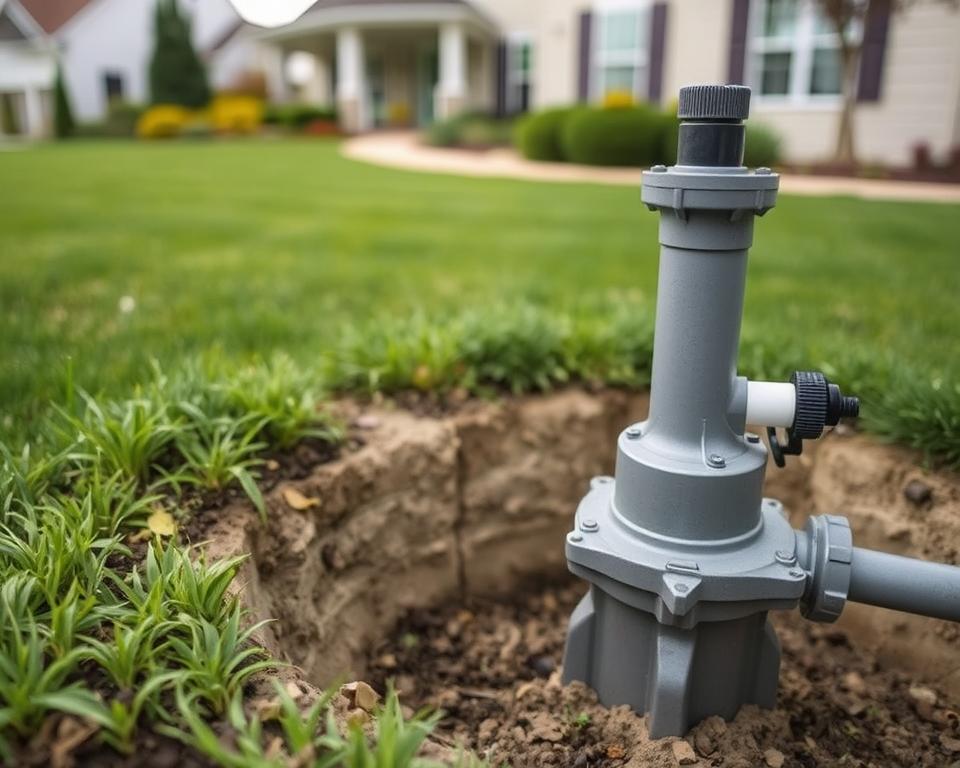Septic Tank Pump Change-Out: Your Guide
Have you considered the fallout of a Septic Tank Pump failure? For many, it’s a situation that leads to serious distress and sudden financial hits. Noticing the requirement for prompt replacement is critical in keeping a working and sanitary Septic system. By sticking with regular system checks, including immediate repair needs, you lengthen your system’s life while avoiding costly emergencies. Companies like All in Sanitation play a major duty in keeping your Septic tank operating smoothly. This guide delivers a straightforward understanding of Septic Tank Pump replacement, detailing symptoms and upkeep suggestions for septic air pump.
Critical Points
- Knowing the role of a Septic Tank Pump is essential for homeowners.
- Timely Septic Tank Pump replacement can save you money in the long run.
- Routine service and cleaning are important to extending the lifespan of your Septic system.
- Qualified service can properly handle Septic system Pump repair and maintenance.
- Detecting preliminary clues of Pump failure can sidestep costly repairs.
Septic System Basics
A Septic system is vital for homes without access to public sewers. It processes and removes household wastewater properly. The Septic tank is key to this system’s performance, playing a vital role in the process.
The Septic tank takes in sewage, partitioning solids from floatables. This separation is crucial for proper wastewater treatment. The clarified water then travels to the drain field, where it gets further purification by the soil, protecting groundwater.
Grasping how your Septic system operates can prolong its life and efficiency. Ongoing service is critical for the Septic tank and the system’s overall well-being. Homeowners must learn about their system’s components to protect the environment and avoid high-cost work.
Defining a Septic Tank
A Septic tank is a underground, leak-proof container integral to household waste management systems. It’s necessary to appreciate the Septic tank’s main role: it deals with sewage waste storage by processing it. This setup functions by isolating solids from liquids, enabling basic wastewater treatment and sanitation.
Its operation relies on naturally occurring microorganisms that decompose waste. In places without centralized sewage treatment, Septic tanks are necessary. They hold sewage long enough for solids to drop, forming sludge. Meanwhile, liquid effluent floats upward, allowing filtration in the drainage field.
Keeping a Septic tank in optimal state is essential for its efficiency and life expectancy. Consistent servicing is necessary to stopping troubles like backups and overflows. These situations can cause pricey restorations and pose risks to the environment. In essence, Septic tanks are indispensable in ensuring hygiene and safety, especially in rural areas.

Warning Signs of Pump Failure
Homeowners should be alert of signs that their Septic tank may need a new Pump. A strong sign is experiencing foul odors by drains or in the yard, suggesting a system failure. Suffering repeated or significant sewage backups in your home requires urgent action to avoid worse issues.
Seeing slow draining drains shows a potential problem. Plumbing fixtures that drain sluggishly might mean a Pump failure or a clog that needs an expert’s evaluation. Additionally, spots of overly lush vegetation in your yard could mean trouble; this shows waste leakage, resulting in overflow concerns.
To ward off serious, high-cost restoration, homeowners should handle these signs immediately. Performing periodic reviews and maintenance is key for the Septic system’s best function.
| Signs | Description |
|---|---|
| Foul Odors | Unpleasant smells around drains or yard suggesting system failure. |
| Sewage Backup | Frequent backups in sinks or toilets indicating potential Pump issues. |
| Slow Draining Drains | Fixtures draining slowly can suggest blockages or Pump malfunction. |
| Lush Vegetation | Areas of overgrowth near the tank signaling possible overflow. |
Pump Lifespan and Timing
Understanding the schedule for replacing your Septic Pump is essential for a smooth-running Septic system. It’s wise to have your system assessed every three years. A trained technician during these inspections delivers insights into how well your system functions.
Usually, cleaning the Septic tank becomes necessary every five years. However, households with high demand or a larger number of occupants might need annual service. Diligent service of your Septic system thwarts high restoration costs and prolongs its lifespan. Specialists in Septic services can create a maintenance plan that aligns with your demand and the characteristics of your system.
Staying ahead with Septic Pump replacements secures your system’s peak performance and guards your home investment. Consistent checks and care dodge unforeseen costs. They keep your Septic system working smoothly.
Replacement Cost Breakdown
The Septic Pump replacement cost differs, shaped by many factors. Homeowners should budget for an amount of $500 to $1,300 for a new Pump. This price bracket accounts for diversity in the type of Pump and material needs. It’s crucial to factor in the Pump and Septic tank servicing costs for the setup and obligatory inspections.
Costs can also rise due to complications within the Septic system or local wage levels. Needed fixes, prompted by wear or harm, could inflate the total outlay. In calculating financial estimates for Septic services, factor in charges for scheduled service, reviews, and any sudden problems since these factors are vital for maintaining your system’s longevity.
Planning financially for regular Septic service reduces the surprise of sudden charges. Early budgeting helps owners in managing expenses associated with the Pump’s replacement and system upkeep.
Pump Replacement Procedure
The Septic Tank Pump replacement starts with a thorough inspection of the system. This preliminary check finds any additional issues aside from the Pump itself. The old Pump is then taken out cautiously and effectively.
Installing the new Pump entails precise attention to securing connections, ensuring no leaks. Specialist firms see that the installation is carried out right, reducing future issues.
The final step is a detailed final inspection. It confirms proper functioning, offering homeowners peace of mind. With expert help, the process is seamless, causing minimal disruption.
Pump Installation Guidelines
When tackling Septic Pump installation, it’s critical to observe best practices. Using licensed contractors guarantees compliance with local regulations. They capably conduct the installation details, eliminating errors common in inexperienced setups.
Adhering to exacting Septic service standards is important for cohesive system operation. Choosing appropriate components and reliable materials lengthens the Pump’s life and optimizes the Septic system’s efficiency. This precise approach improves maintenance and overall performance longevity.
- Choose a trusted service provider who specializes in Septic systems.
- Make certain that all necessary permits and inspections are in place before work kicks off.
- Install Pumps that suit the specific requirements of your Septic system.
- Schedule a pre-installation inspection to check site conditions.
- Keep in mind the layout and flow of the Septic system during installation.
Following these guidelines ensures a seamless setup. It also provides a steady system for proper sewage treatment.
Upkeep Tips
Avoiding high bills with your Septic system starts with regular maintenance. By following simple guidelines, homeowners can maintain their Septic systems’ efficiency. Arranging consistent assessments is a wise step. It spots and rectify problems before they become significant.
It’s also vital to not allow flushing undesirable things down the drain. Oily residue, chemicals, and items that don’t break down can damage your system. Lowering water use during high-usage times can also ease system load.
Booking professional cleanings with entities like All in Sanitation is vital for Septic health. Being aware of what you must and must not do with your Septic tank can significantly prolong its lifespan and secure your household environment.
Cleaning Your Septic Tank
Consistent Septic tank cleaning is essential for your system’s long-term function and efficiency. The process entails sludge removal, looking for issues, and verifying everything works well. These steps are critical to support reliable function and avoid expensive fixes.
A comprehensive Septic maintenance plan should feature periodic assessments and cleanings that align with your specific usage. Homeowners must appreciate the importance of prompt care to sidestep difficulties like backups. Employing specialists ensures the cleaning is thorough, promoting a safe household.
| Service Type | Frequency | Benefits |
|---|---|---|
| Pumping | Every 3-5 years | Wards off system failure and backups |
| Inspection | Annually | Finds potential issues early |
| Maintenance | As needed | Prolongs the lifespan of the system |
Committing to routine Septic tank cleaning lowers spending and extends your system’s life. It supports uninterrupted waste treatment. Acting now ensures your Septic system’s efficiency for the future.
Finding the Best Septic Tank Pump Replacement Service
Finding a trustworthy Septic service provider is vital when replacing a Septic Tank Pump. First, checking their certifications and licenses. Such credentials validate the company’s compliance with industry norms, critical for a seamless replacement process.
Researching customer reviews is also a key step. Past feedback indicates service quality, helping with the filtering process. Choose companies with a strong track record of excellent workmanship and customer support.
Note recommendations from your community too. Insights from friends and neighbors can unveil top-notch Septic services in your vicinity. Always seek detailed stories of their successful projects with these services.
Finally, evaluate the range of services and cost from various firms. A careful analysis guarantees exceptional service and optimizes the value of your expenditure. Adhering to these guidelines secures your Septic system receives the best care it needs.
Deciding Between DIY and Pros
Homeowners often ask themselves whether to handle Septic issues personally or seek professional help. DIY Septic maintenance looks attractive for minor fixes and upkeep. For example, checking tank levels or cleaning drains can be done solo.
However, recognizing when to hire Septic professionals is vital for grave issues. In-depth repair, replacing systems, or big blockages need special tools and expertise. Without the necessary skills, attempts to solve these problems can cause environmental risks and significant harm.
Deciding between DIY and professional help calls for considering the job’s complexity. Presented below are examples showing when DIY is suitable and when professional Septic services are advised:
| Situation | DIY Feasibility | Need for Professional Help |
|---|---|---|
| Routine maintenance (e.g., tank level checks) | Yes | No |
| Minor clogs in drain fields | Yes | No |
| Major Septic Tank Pump failure | No | Yes |
| Complex sewage backflow issues | No | Yes |
| Regular system inspections | Possible DIY | Yes for thorough checks |
Making informed decisions on these matters secures safety and efficiency. Choosing correctly not only protects the Septic system but also avoids surprise expenses.
Bringing It All Together
Knowing the workings of your Septic system is important for its sound handling and your home’s smooth running. Catching early indicators of issues helps avoid high repair bills and ensures the system’s integrity. This proactive approach helps the environment and raises your property value.
To preserve your Septic system in excellent condition, emphasize maintenance. This entails routine checks and prompt professional Pumping. This small outlay maintains your home’s safety and your family’s health. Your Septic system operates smoothly with diligent attention.
Our team at All in Sanitation is dedicated to delivering high-quality Septic care. We supply the skill essential to guarantee your system operating efficiently, securing your home investment over time. With our focus on reliable support and reliability, we’re ready to meet your Septic maintenance needs.
